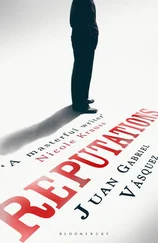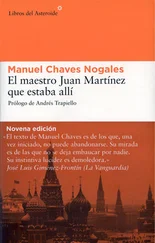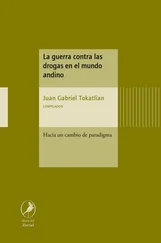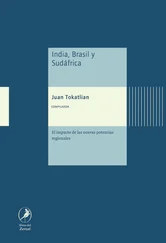“That noise gets on my nerves. I don’t know how you can stand it.”
“Good evening,” said Claire.
“Every time it opens, every time you close it.”
“Good evening,” said the woman. “I’m a friend of the family. Anne. A friend.”
We said hello, and I noticed that Claire didn’t know quite how to introduce me. This was not the moment to go into details about nationality and profession; I was not going to be of any use to her this time, to break the ice in gatherings of strangers. In the living room, two armchairs and a small sofa were covered with white sheets, and both windows had lace curtains. The woman sitting on top of the sheet, at one end of the sofa, seemed like she hadn’t moved in a long time. It was Philippe’s sister, the woman whose son had died. Her eyelids were swollen and she had a red mark on her neck. Her head was hanging slightly to one side, her gaze fixed on some point in the sisal rug. Philippe sat down next to her, and Anne, the friend, sat in the other chair. But it was as if Claire and I weren’t there, as if we hadn’t arrived yet. Claire went over to Philippe; he didn’t look at her. He’d put a hand on his sister’s knee like someone setting down a cup of coffee. And he did not look at Claire. Not once did he look at her.
No one spoke, the bodies barely moved, and the sound of clothes brushing against the sheets, when that happened, was as clear as a violin in the still air of the room. The only thing I wanted to know was where the dead boy was and if there was anything we could do to help: take care of some of the procedural paperwork, recover the car from the accident site, any of those routine tasks that are terrible because they take us away or distract us from the pain. I said:
“I’m sorry, madame.”
Nothing happened. No one looked at me. Philippe’s sister did not move her head. And that was when Claire, perhaps tired of standing like a statue at Philippe’s side, approached his sister, knelt down at the foot of the sofa, and embraced her. It was a simple gesture, and didn’t seem to have any consequences until Claire tried to go back to her place, and the woman’s arms surrounded her and kept her there and her voice released a wail, he’s dead, Claire, my baby’s dead, and I saw the clenched, pale fists against Claire’s black shawl. They were heavy hands and they pressed Claire’s back and clothes, and the fingers wore no rings and her skin was so fair that blue veins were visible in the faint light. Philippe, sitting beside the two embracing women, looked at the bells he’d put on the coffee table. He picked them up, hung them from one finger, and shook them so it sounded like someone had just come in.
—
LESS THAN A WEEK LATER, I had to pass through Brussels again, on my way back from Paris, but I was able to change trains at Midi station and continue my trip to the Ardennes without seeing Claire and Philippe. In the house in Aywaille, as soon as I arrived, I began to organize my notes and write the article. About the bookshop’s bedroom, I wrote: “It’s a child’s room, a child who has not visited in a long time. The doors of a wardrobe have been removed in order to fit a little bed inside it, but there are still checked blazers and winter jackets hanging from the rail. There’s nothing as lonely as the spectacle of abandoned clothing. It smells of mothballs and ammonia, because the bathroom is right next door. From the portraits, which absorb my attention, I discover that this room belonged, some time ago, to Sylvia Beach Whitman, George’s daughter. In the photographs, the little girl plays wearing nothing but a necklace made of flowers or she appears with Baskerville, her German shepherd. It is in fact an altar arranged by George for the adoration of his daughter. There is one thing lonelier than abandoned clothing, and it’s a child’s room abandoned by the child.” As I was writing, I was thinking of Philippe’s sister’s dead son.
One spring Sunday, three or four weeks after that night, Claire came to Aywaille to talk to Monsieur Gibert. I was pleased to see her, and to see her lightness as she stepped out of the car and the casual air with which we all chatted, standing in the narrow kitchen, warmed by the steam pouring out of the pans and hitting the tiles.
After lunch, Claire and I stayed downstairs. When quite a long time had passed in silence, Claire said:
“Let’s go outside. It’s hot in here, the windows are all steamed up. Let’s go for a little walk.”
It was cloudy and the sky looked like rain. We took the path toward the woods, walking on tiptoes between the puddles and fresh mud.
“What a change,” said Claire. “I’d never live here, but it’s really good to come out here once in a while.”
“Nice to breathe fresh air.”
“It’s so quiet,” said Claire. “No parties next door.”
“There aren’t any people, just animals.”
“Philippe’s seeing someone,” said Claire. “I don’t know if my father’s told you.”
He hadn’t told me. But in some obscure way, I’d deduced it after a series of random comments, and had rejected the idea, and soon the idea had come back to worry me. The strange thing was how Claire told me, as if she were talking not about a potential marital disaster but of help found, as if Philippe, rather than going out with another woman — her name was Natasha, she was English and worked for the European Economic Community — were seeing a psychologist.
“She called the house the other day,” said Claire. “She didn’t even know Philippe was married.”
At a fork in the path, where you have to decide whether to go up the hill until you can see Hamoir in the distance or turn right toward the road to Ferrières, we stopped. Claire had gotten distracted as she walked and her tights were soaked and dirty.
“What are you going to do?” I asked.
“Well, I’m going to wait. This is a phase, you know.”
And then, as if resuming a conversation we’d interrupted earlier, as if the change of topic wasn’t sudden or abrupt:
“When she embraced me, I didn’t think about her. I didn’t think that hugging me might make her feel better. I thought this embrace was happening to Philippe and me, and we would be the beneficiaries.”
She rubbed her hand across her face, looked at it as if her features had become entangled in her palm.
“Maybe all this is a punishment, no? Someone’s punishing me for being so egotistical.”
We got to the little stone church, a construction the size of a doll’s house, where Claire, as a child, used to come and play. It had a rusted iron gate that would no longer budge. It had no Christ, no cross or altar. The interior was nothing but a damp rectangle, the walls devoured by lichen, the concrete floor covered in pine needles. “And what if we prayed?” said Claire; but before I had time to be surprised (Claire was an atheist, as were her parents), she burst out with a short dry laugh. She didn’t say anything more until we reached the place where smoke from the chimneys of Hamoir began to come into view. The grass beside the path was too wet for us to sit down, so we stood there, looking at the green carpet that rolled down toward the first buildings. I put my arm around Claire and said:
“When you want to come back, let me know.”
“Come back, ah,” she sighed. “If it were up to me, I’d stay right here till Judgment Day.”
—
CLAIRE DECIDED NOT TO STAY for dinner: at five in the afternoon the sky was already black, and the prospect of driving to Brussels on her own on the dark, slippery highway seemed exhausting. I walked her to the car and asked her to call us when she got home; I noticed something resembling gratitude in her voice; it was as if she wanted to tousle my hair, as one might do to a brother, but she didn’t. I watched her drive away until the red taillights had disappeared. In the living room, Monsieur Gibert had lit a fire; I sat in the upholstered armchair, beside the box of newspaper, and after a while Gibert appeared with an aperitif in hand. I remember that conversation very well, lasting as it did for the entire meal and full of old wartime anecdotes, in particular about the day Gibert rode his bicycle down to Spa and ran into a German soldier younger than he was, just a boy, maybe seventeen years old, and there was in that instant a tremendous understanding in which Gibert wouldn’t take his hands off the handlebars to grab his rifle if the soldier didn’t reach for his cartridge belt. “Who knows if I’d be alive right now,” Gibert said to me, “if one of the two of us hadn’t been afraid.”
Читать дальше










